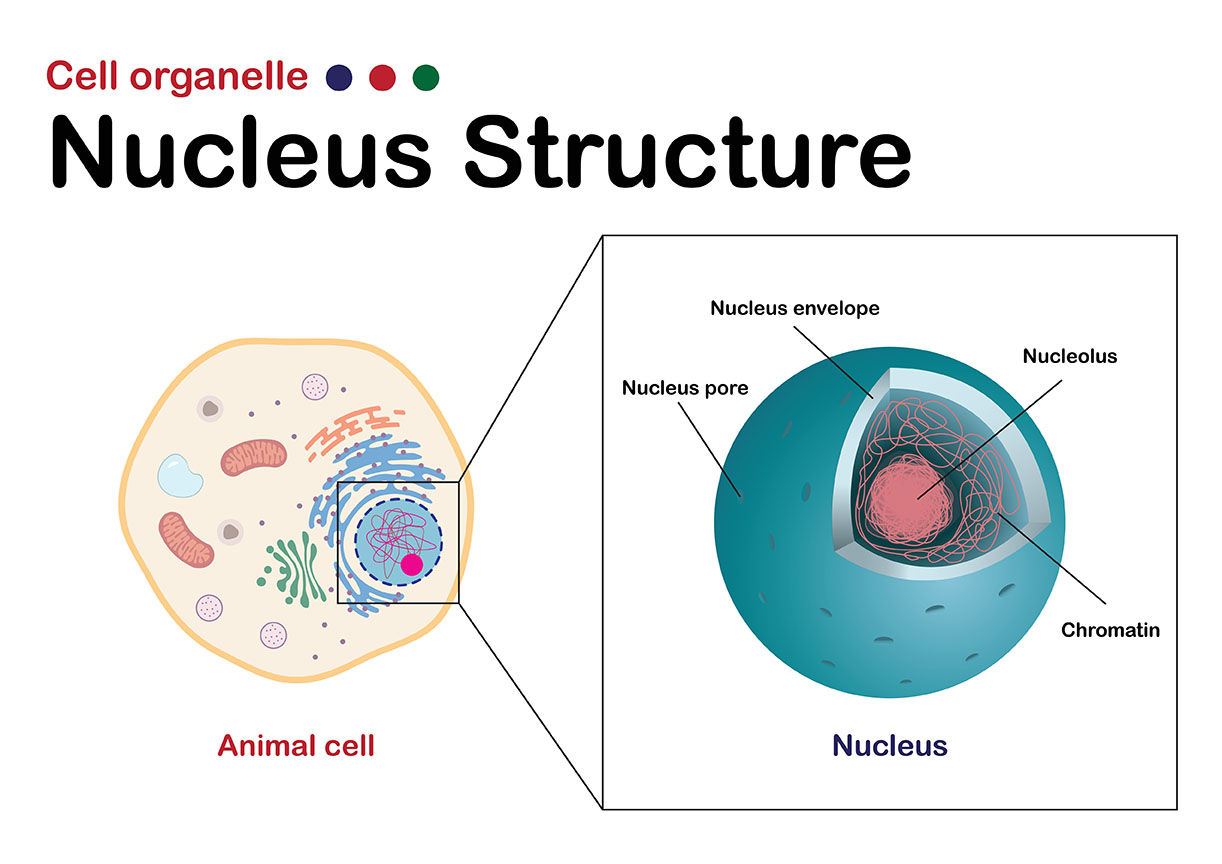

In cell biology, the nucleus is the most important organelle in a cell. It is surrounded by a double membrane called the nuclear envelope. The nuclear envelope has pores that allow molecules to pass in and out of the nucleus.
The nucleus contains the cell's DNA, which is the genetic material that determines the cell's structure and function. DNA is organized into chromosomes, which are long, threadlike structures.
The nucleus also contains proteins that help to control the cell's activities. These proteins are responsible for transcription, translation, and DNA repair.
Transcription is the process of copying DNA into RNA. RNA is a molecule that carries the instructions from DNA to the ribosomes, where proteins are made.
Translation is the process of using RNA to make proteins. Proteins are the molecules that make up all of the cell's structures and carry out its functions.
DNA repair is the process of fixing damaged DNA. Damaged DNA can occur from exposure to radiation or chemicals.
The nucleus is essential for cell growth, division, and reproduction. It also controls the cell's metabolism.
The word "nucleus" is related to the words "kernel" and "nut.".

Noun: The central core or essential part of something.
Adjective: Relating to the nucleus of an atom or cell.
Noun: The central core or essential part of something.
Adjective: Relating to the nucleus of an atom or cell.
What is a nucleus?
Question:
Explain the role of the nucleus in a cell and its significance in controlling cell functions.
Answer:
The nucleus is a crucial organelle within a cell, serving as its control centre and playing a vital role in various cellular functions.
One of the primary functions of the nucleus is to house and protect the cell's genetic material in the form of DNA (deoxyribonucleic acid). DNA contains the instructions necessary for the cell's growth, development, and functioning. These instructions are encoded in genes, which are segments of DNA. The nucleus ensures the integrity and replication of this genetic information during cell division, ensuring the continuity of traits from one generation of cells to the next.
Moreover, the nucleus actively participates in gene expression. This process involves the transcription of DNA into RNA (ribonucleic acid), which serves as a template for protein synthesis. The nucleus regulates which genes are expressed in response to various signals and needs of the cell. This control over gene expression is crucial for the specialisation of different cell types and the overall functioning of multicellular organisms.
Furthermore, the nucleus contributes to the regulation of cellular processes through its role in synthesising and storing important molecules like RNA and ribosomes. It also plays a part in cell cycle regulation, ensuring that cells divide and grow in a controlled manner.
In essence, the nucleus serves as the central hub of a cell's genetic and regulatory functions. Its ability to store genetic information, control gene expression, and regulate cellular processes underscores its significance in maintaining the proper functioning of cells and, by extension, the entire organism.
Address
Developing Experts Limited
Exchange Street Buildings
35-37 Exchange Street
Norwich
NR2 1DP
UK
Phone
01603 273515
Email
hello@developingexperts.com
Copyright 2025 Developing Experts, All rights reserved.